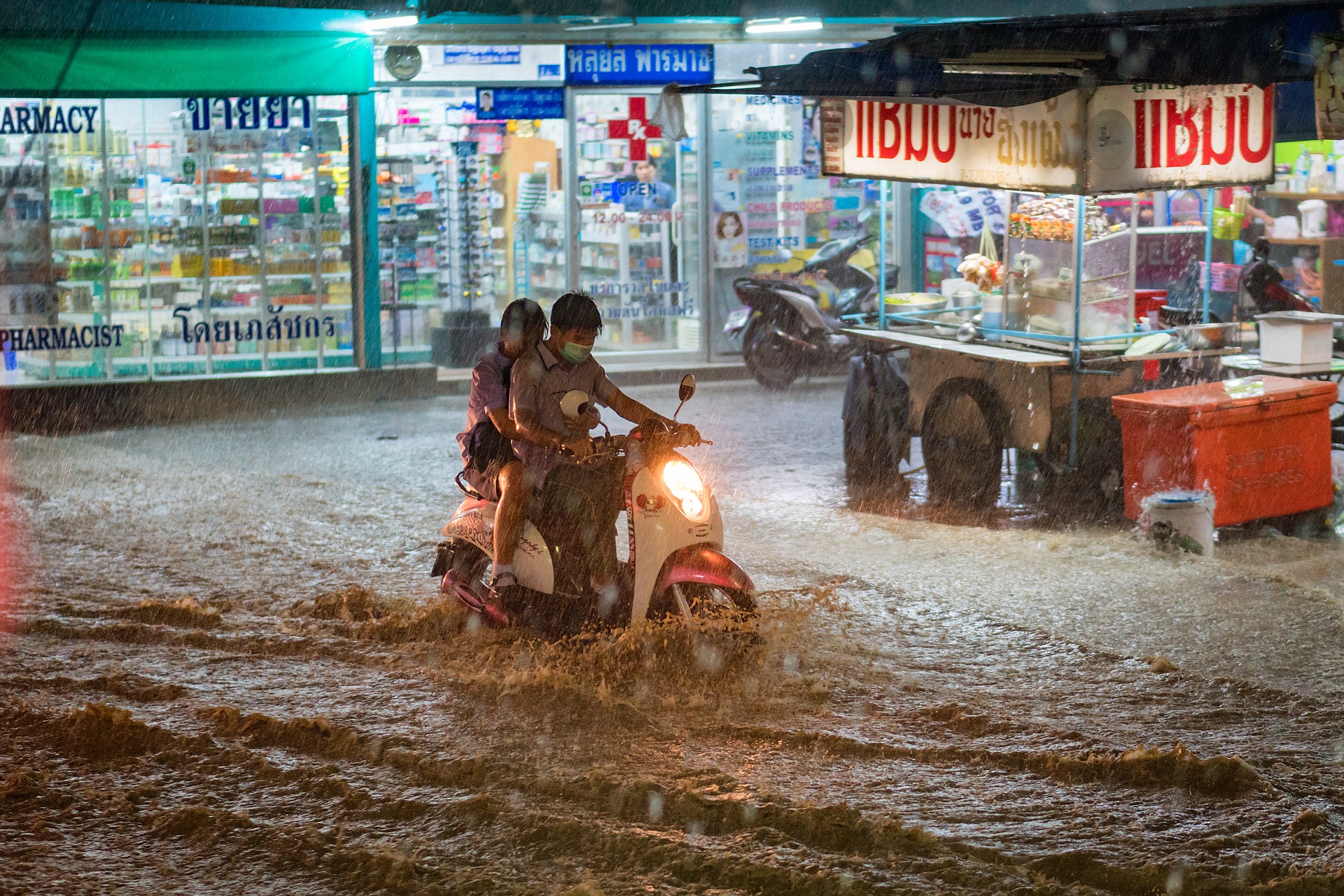
Resilience and Globalization: Don’t Lose Sight of the Benefits
novembre 27, 2017 — Uncategorized
If the future holds out the prospect of more floods and severe storms, of droughts and fresh water shortages, we need more globalization, not less. Why? Because globalization is the key both to greater resilience when disaster hits, and to the changes in lifestyle and technology which will enable us to reduce vulnerability and make the transition to a truly 21st century ecology.
There has been a dramatic increase in the frequency and severity of natural disasters since 1990. And in the last quarter century, markets have become more interdependent as exports in the world economy have doubled from about 15% to 30%. Cause and effect? Of course not: globalization does not cause earthquakes or hurricanes.
Globalization is blamed for many things, from immigration and rising inequality, to the impact of shipping and aviation on climate change. We often need a scapegoat, and this is one which some on the radical Left, as well as populists on the Right, have in common. Often, however, the problems are domestic, reflecting shortcomings in education and skill training, infrastructure, entrepreneurship.
How Globalization Helps
Today, cities and even countries are at the limit of what they can cope with singly. Storms, earthquakes, disasters of many kinds are like a siege: they isolate places until help arrives. We know the anger of people who think they have been forgotten. Being connected is a virtue, and globalization multiplies the ways we as individuals and as economies are tied into networks.
When a heatwave and fires in Russia destroyed part of the wheat crop, and incidentally led to the deaths of 56,000, the price of wheat worldwide shot up, but global commerce prevented shortages. Before the mid-20th century, famine in some parts of the world would have been unavoidable. When storms devastated the island economies of the Caribbean in the age of empires (16th-20th centuries), people were unable to import food and other essentials from neighboring islands – legally, that is, due to restrictive laws much like the modern Jones Act (1921) which Trump had to suspend, to provision Puerto Rico.
Globalization brings with it problems – but they carry a lesson: We have a collective interest in how well all our countries assess and prepare to reduce the impact of environmental risks. For example, the 2011 floods in Thailand ($46 billion) shut down many factories producing for global supply chains over a two-week period. Consumers and producers worldwide now know more about the problems of water management in Thailand – and on the Gulf Coast and along the Elbe River as well.
In previous centuries globalization was very one-sided, the benefits flowing to the great port cities of Europe and North America. Between 1960 and 2013, GDP per capita for middle income countries grew by over 3,500%, only to reach the level of OECD countries in 1975. The gap between rich, middle income and poor countries remain: income disparities are now glaring in some rich countries as well. But the standard of living in middle income countries in terms of life expectancy, literacy, child mortality, and other measures of the quality of life is often very high, and this historic step change can be locked in for future generations.
By helping to lift billions of people out of poverty, globalization has had a moderating effect on the loss of life in natural catastrophes. People who live in better housing and who have better medical care, etc. are more likely to survive a flood, hurricane or earthquake. Fewer than 400 people died in Mexico City in this year’s earthquake, but approximately 10,000 died in that of 1985; the numbers in 2017 might have been even lower, had building standards been enforced rigorously.
We are on the cusp of innovations which can make people and places safer. Policies that take advantage of globalization – market openness, competition, government regulations – affect the rate of innovation, and even more, its take-up, how quickly economies adopt innovation. As they work their way through economic and social channels, these same reforms can lower the cost of disasters when they occur, and quicken a recovery.
There is nothing inevitable about globalization, which is why fears that it may be reversed through populist measures are a clear signal for better ways to cope with its consequences. Measures that help societies respond to the challenges of globalization will also make them more resilient in the face of natural disasters. Who knows: maybe efforts to increase the factors of resilience will also make societies more inclusive and:
- Value local assets;
- Improve skills and organizational capacity;
- Remove regulatory and trade barriers that retard the spread of innovations;
- Make it easier to start a business and to help it grow, including by fighting corruption;
- Set strategic priorities and investing in infrastructure, especially for water, energy and transport.
And this is the link between resilience and other phases of what the NewCities Foundation is doing to promote innovation, entrepreneurship, partnership and, as in November 2017 in Los Angeles during LA CoMotion, to apply them to such challenges as transportation in big cities.
If we did not have globalization as a means of coping with disasters, we would have to invent it. Let’s use it wisely and constructively.